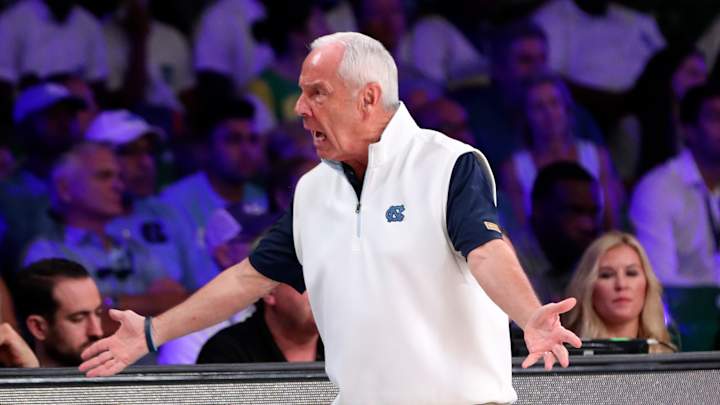Lacking Rim-Runs, Turnovers and Easy Buckets, the UNC Break is Still Struggling

CHAPEL HILL — Armando Bacot knows that the North Carolina basketball program is built on the break and he knew he’d have to adjust to the split-second transition between a ball coming off the rim and taking off full-speed for the other end of the floor.
But as much as you mentally prepare for the Tar Heels’ pace, nothing truly compares to living it daily.
Developing that instinct is still a work in progress for the freshman big man.
“It’s definitely hard just having to run hard every possession,” Bacot said.
It’s not just Bacot, as Carolina’s defining characteristic has been lacking all season long.
“We’re still not playing at the pace I want to play at,” Roy Williams said. “We’ve got to work on that because our offense is not very good.”
After ranking sixth nationally in tempo last season at 74.3 possessions, Carolina currently stands 71st at 72.1 possessions.
The struggles are more complicated than just running the floor though, as the Tar Heels’ signature transition attack is the result of synergy between Carolina’s ability to force turnovers, transition quickly and execute in one of three phases of the offense.
Right now, there are issues at every level, including on defense where Carolina ranks 340 nationally in turnover rate and 296 in steal rate.
Without turnovers to fuel the break with easy buckets, it starts with the big men.
“We’re not running effectively enough by getting the initial threat against the other team by a strong low-post presence,” Williams said.
Looking back to Tyler Hansbrough, Williams pointed out that the big man did an excellent job of making a full-speed sprint after a defensive rebound and immediately established position in the post, putting the opposition in turmoil as defenders were forced to account for his presence.
“(He’d go) front of the rim and just try to kill people,” Williams said. “That sucked everybody back in and good shooters made a bunch of shots.”
Bacot, prepared as he was to run, admitted that he’s still working on developing the instinct that when he sees Garrison Brooks or another Tar Heel grab a rebound, he’s got to take off immediately.
“It’s definitely something that me and G have been trying to work on and get better at because we know that the offense starts with us running at the front of the rim,” he said. “It’s something I feel like we did better against Oregon, but it’s something we still have to get a lot better at just in order for us to get our pace back to what it usually is and for us to put up a lot more points.”
Still, even when big men run the floor, opponents still get back and force the offense to pull the ball out — that’s part of basketball. That’s typically where Carolina has been excellent, as it makes the transition from the primary break into the secondary break that Dean Smith made famous.
The secondary hasn’t been at its best this season, but the real area of concern for Williams is what happens when the Tar Heels run through their primary and secondary break offenses and look to create a basket against a set defense.
“Once we get down there, we’re not doing a great job of the transition between, ‘OK, we didn’t get anything in primary, we didn’t get anything in secondary,’” Williams said. “There’s a 10- or 12-second stretch there that we’ve always gone in, flowed straight into what we’re doing and we’re not doing that.”
The Tar Heels worked especially quickly last season, ranking fifth nationally in average offensive possession length at 14.6 seconds. This season, the Carolina offense is taking an average of 16 seconds per trip.
A good portion of that time is coming late in possessions, when the offense has had trouble creating opportunities — something especially frustrating for Williams.
‘We’re standing around and then waiting to make a call to run a last-second shot so that’s the most irritating thing of any team I’ve ever coached,” he said. “We’ve always been able to keep you on your heels by, ‘You’ve got to defend primary, you’ve got to defend secondary, now you’ve got to defend without saying, whew, where’s my man.’
“We haven’t done a very good job. No — we’ve done a pee-poor job of that.”
